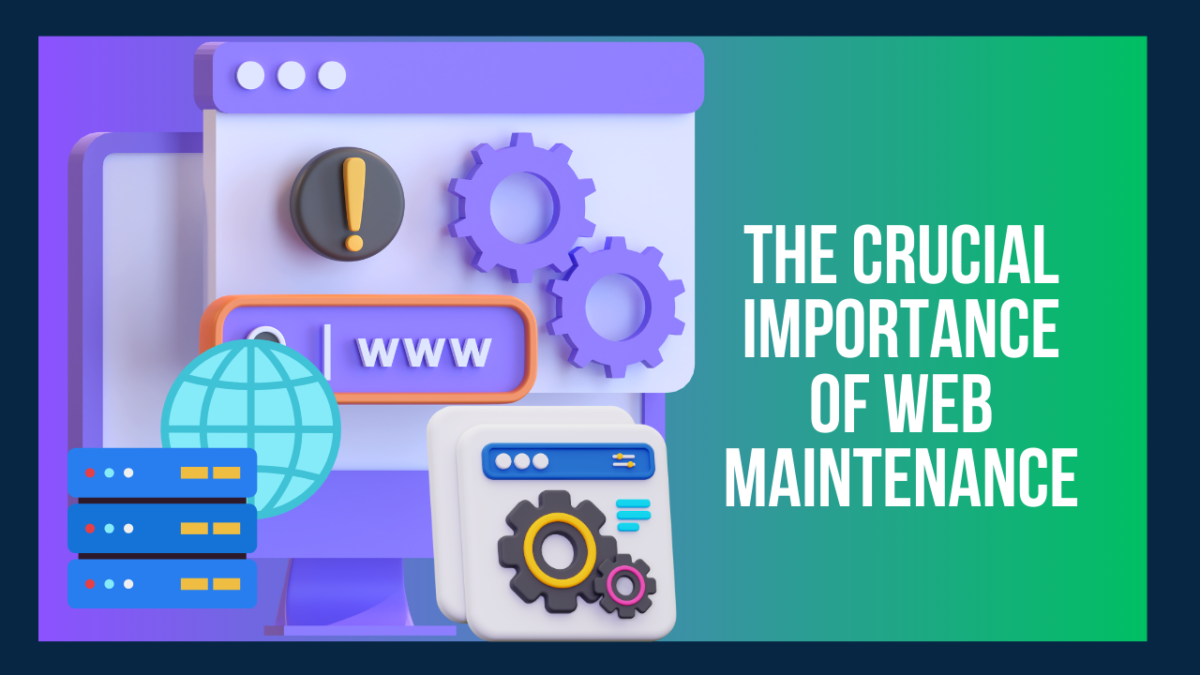In today’s digital age, having a strong online presence is vital for businesses and individuals alike. Many websites are built on WordPress, a popular content management system accompanied by various plugins. However, without regular web maintenance, the security and performance of these websites can be compromised, leading to potential disasters. In this blog post, we will explore the significance of web maintenance, focusing on the importance of plugin and PHP updates, as well as the distinction between the website’s front end and back end.
The Dangers of Outdated Plugins and PHP: WordPress websites heavily rely on plugins to extend and enhance functionality. While plugins can bring valuable features to your site, they also require regular updates. Neglecting plugin updates can leave vulnerabilities that hackers can exploit to inject malware, compromising the integrity of your website. Moreover, if PHP, the scripting language that powers WordPress, is not updated, it can expose security loopholes, making your site an attractive target for cyber attacks.
The Search Engine’s Watchful Eye: Search engines like Google prioritize user experience and website security. If your website is infected with malware or compromised due to outdated plugins and PHP, search engines will quickly detect this and label your site as unsafe. Consequently, your search engine ranking may plummet, resulting in decreased organic traffic and negatively impacting your online visibility.
The Ripple Effect: A hacked or infected website can inadvertently become a host for malware distribution. This means that anyone who visits your site could unknowingly have their computer infected, leading to potential data breaches or other cybersecurity issues. It is essential to prioritize web maintenance to protect both your website and its visitors.
The Role of Web Maintenance: Web maintenance encompasses a range of tasks aimed at keeping your website healthy, secure, and up to date. Regular updates to plugins, PHP, and other website components ensure that security patches are applied and vulnerabilities are addressed promptly. Additionally, routine backups safeguard your website’s data in case of any unforeseen events.
Understanding the Front End and Back End: To fully appreciate the importance of web maintenance, it’s crucial to understand the distinction between the front end and the back end of a website. The front end refers to the visible elements that users interact with, such as the design, content, and user interface. The back end, on the other hand, encompasses the behind-the-scenes technical aspects that power the site, including the server, database, and codebase. Maintenance tasks often focus on the back end, ensuring that it remains secure, optimized, and compatible with new technologies.
Why Professional Website Maintenance Matters: Maintaining the backend of your website requires expertise and knowledge of web development best practices. From plugin updates to PHP compatibility checks, a professional web maintenance service can handle these tasks efficiently, reducing the risk of security breaches and improving overall performance. Entrusting your website’s wellbeing to experts ensures that potential issues are proactively addressed, allowing you to focus on other aspects of your business or online presence.
Web maintenance is not a luxury but a necessity in today’s online landscape. Neglecting proper upkeep can lead to compromised security, diminished search engine rankings, and even infecting visitors’ computers with malware. By prioritizing regular updates, security checks, and enlisting the help of professionals, you can safeguard your website’s health, maintain its optimal performance, and provide a seamless experience for your visitors. Remember, prevention is always better than cure when it comes to the digital realm.

